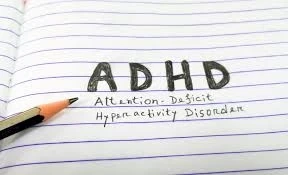Attention deficit hyperactivity disorder, or ADHD, is more common in people who have a parent or sibling who has the illness, although doctors are aware that other variables may also be involved.Learning, conduct, and attention are all impacted by ADHD. ADHD is typically diagnosed in children, but symptoms can persist throughout adolescence and adulthood.As per the 2016 figures, approximately 9.4% of children in the United States aged 2-17 had been diagnosed with ADHD.Discover more about the impact that heredity plays in ADHD in this article, along with additional causes and risk factors.
Does ADHD run in families?
Experts are not entirely sure what are causes of ADHD specifically. However, they think that a major contributing component to the condition\'s development is inherited genes. Research on genetics is only now beginning to connect some genes to ADHD. Research from a number of twin, family, and adoption studies lend credence to the notion that ADHD is inherited. genetically based risk factors The contribution of genes to the probability of contracting an illness or condition is known as genetic risk. An international group of academics studied the genetics of ADHD in 2018 and published their results in Nature Genetics. The researchers found that for the first time, genetic variations accounted for about 22% of the risk of ADHD. Certain genetic variations had an impact on how brain cells communicated with one another, while others had an impact on cognitive processes like language and learning.
ADHD-afflicted parents
In a 2016 study, the researchers found that nearly half of parents of children with ADHD also had the disorder. The diagnosis of ADHD was given to roughly 41% of mothers and 51% of fathers of children with the disease.
ADHD twins
Researchers can determine whether a trait is influenced by a child\'s environment or by genetics by looking at studies on identical and fraternal twins. Genes may play a major role in determining a trait\'s similarity between identical twins compared to fraternal twins. If, on the other hand, a trait is similarly shared by identical and fraternal twins, this suggests that environmental influences have a greater effect than genetic ones. According to twin study experts, the heredity of ADHD ranges from 60% to 80%.
ADHD siblings
The younger siblings of children with ADHD were more likely to be diagnosed with the disorder, according to research published in 2019. The likelihood of an ADHD diagnosis among siblings born later was found to be approximately 13 times greater in those with older siblings diagnosed with ADHD than in those without older siblings.
Variations in DNA
Additional investigation examined the possibility that DNA duplications or deletions were more prevalent in ADHD sufferers. Compared to 7% of children without ADHD, the researchers discovered that 14% of children with ADHD had significant DNA differences.
Reasons
The causes of ADHD and its risk factors are still being investigated by researchers. ADHD may be influenced by a mix of social, environmental, and genetic variables, according to research. Currently being examined are the following risk factors and causes:
DNA
Early birth
Reduced birth weight brain damage
Exposure to pollutants during pregnancy, lead exposure in childhood, and alcohol and cigarette use during pregnancy
ADHD symptoms
ADHD symptoms might differ from person to person. People with ADHD frequently exhibit hyperactivity-impulsivity and inattentional behaviors that impede growth and functioning.
Lack of focus
Making thoughtless mistakes or missing details; finding it difficult to focus while working or playing; and not paying attention when someone speaks to them directly are some of symptoms of inattention.
Not carrying out instructions or rapidly becoming distracted
Unable to keep activities and responsibilities organized
Avoiding activities that call for extended mental strain
Losing the things you need to do a task
Readily getting sidetracked by irrelevant ideas and stimuli
Forgetting to do everyday tasks and activities and to fulfill appointments
Overzealousness and impatience
Hyperactivity-impulsivity symptoms include fidgeting or wriggling when seated, walking away when it\'s expected of you to be seated, and running or climbing when it\'s not appropriate. being unable to participate in activities quietly, moving incessantly, chatting nonstop, blurting out replies before the question is asked, and finding it difficult to take turns disturbing or encroaching on other people The signs and symptoms of ADHD often alter with age. The symptoms can start to show up as early as age three and last until puberty and adulthood.
When to visit a physician
People often exhibit some degree of impulsivity, hyperactivity, and inattention. These behaviors, however, are more severe, occur more frequently, and impede social and functional capacities in people with ADHD. A physician can diagnose patients with ADHD and make sure they get the right care by following certain recommendations.While there is currently no treatment for ADHD, patients can manage their symptoms with the use of drugs, psychotherapy, and education. In summary, a number of factors probably contribute to ADHD, even though genetics plays a part in the illness. Individuals with ADHD are more likely to develop ADHD than members of families without the disorder. Research on genetics and families is being conducted to learn more about the genes that are linked to ADHD and if the disorder is inherited.



